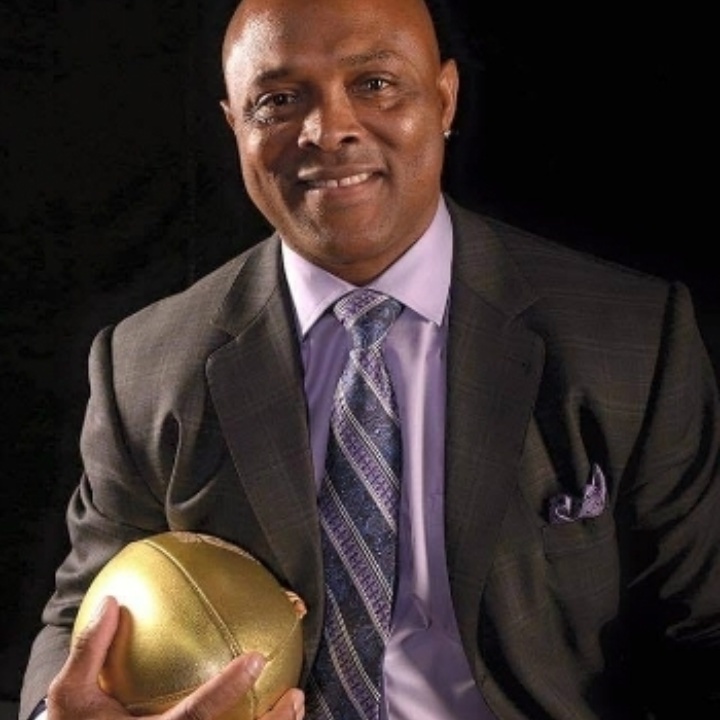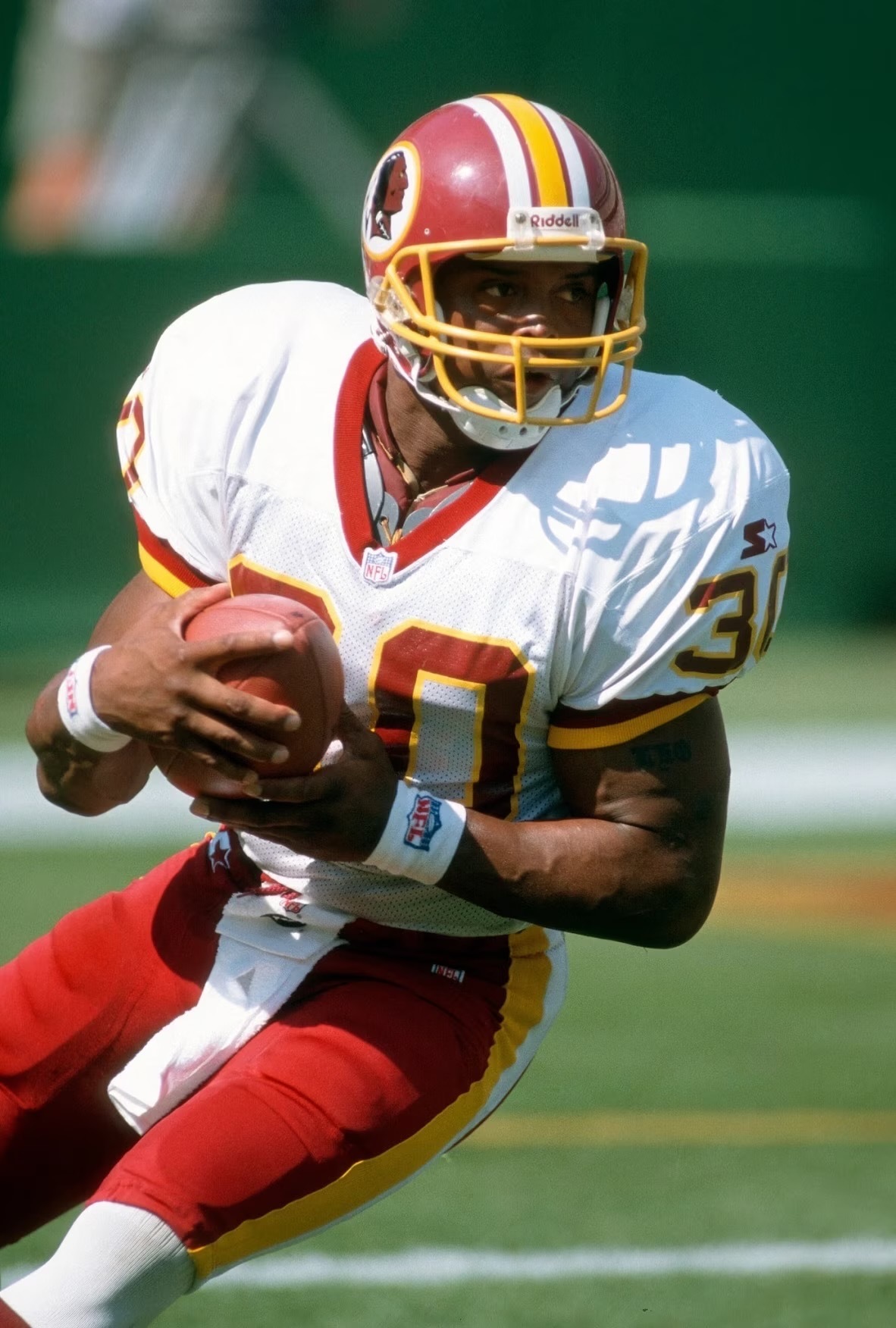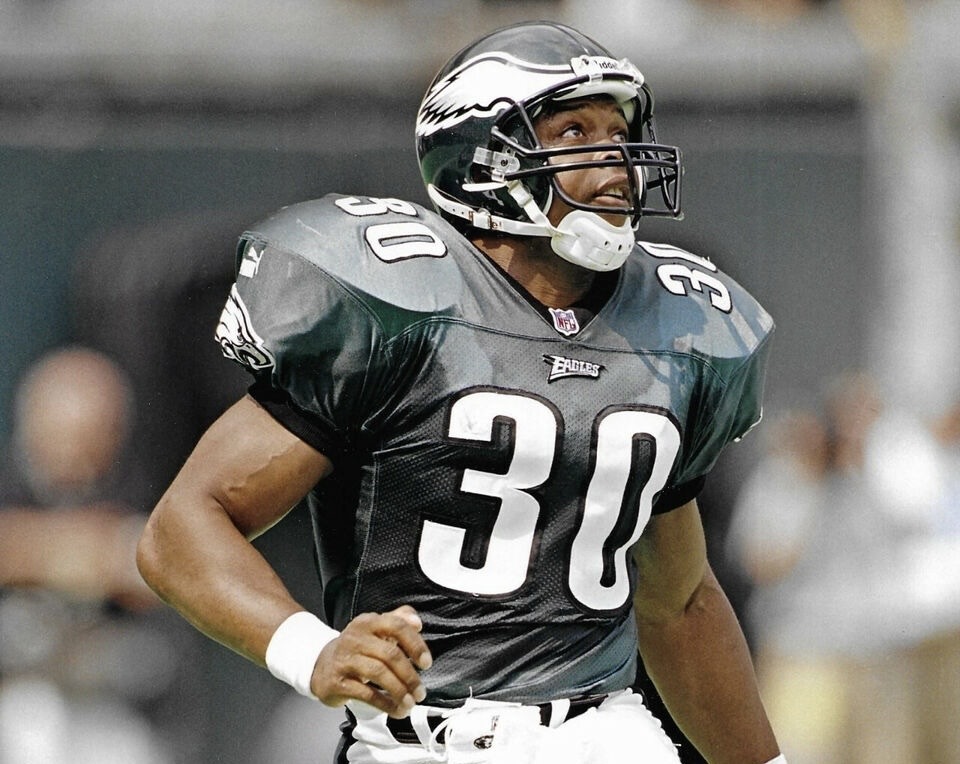
Catching Up With Former Player Rep: Brian Mitchell
We sat down with former NFLPA Player Rep and Executive Committee Member, Brian Mitchell. Brian played 14 seasons in the NFL between the Commanders, Eagles, and Giants and earned All-Pro honors, Pro-Bowl honors, Washington Ring of Honor honors, and 90 Greatest honors. He is also a Super Bowl XXVI champion, held multiple NFL records, and was the NFL punt return yards leader in 1991.

What inspired you to become a Player Rep?
It was 1990-91, and it came down to signing the CBA and a lot of the guys on the team weren't into it. As you listen to them, you find out they have their own personal reasons. It wasn't anything against the union per se. They were trying to present their thoughts to everybody else. I can remember being in a meeting and talking to guys and talking to Gene Upshaw. After the meeting, Gene told me I should try and run for a Rep because he said I didn't just follow what everybody else said but that I talked for myself. So I got involved with that and ended up in depositions and everything else. As I began to go through that stuff, I noticed it wasn't as close as it is right now. There was a lot of bickering back and forth from the union side and the owner’s side. Then when we got into training camp one year, I had some general managers try to call me into a meeting to ask me questions about the union. So I knew it needed someone with my type of mindset, where I don't care what you think. If you're not a part of it, I'm not telling you anything about it.
What lessons or experiences were you able to take away from your time as a Player Rep?
It's just like being a parent, where we're doing stuff to make sure our kids have a better life, a better opportunity than we had. I felt the union was basically that way. You start fighting for something and it takes 3, 4, or 5 years and then you're out of the league, but somebody else benefits from it. You would hope that the people behind you pick it up, just like my dad told me to make sure his grandkids' lives were going to be better than mine was. If everyone does that, then all of a sudden you can see the benefits coming down the line for everybody, and I think that way. I feel like a lot of things that people are enjoying today in the league, we fought for it but we didn't experience it per se. But I'm not mad because that's how it works half the time. You have to set things up for people that come behind you so it's a lot better for them. I got into that mindset and that's what I work for. I think for me when I look at it, it’s like the story of the speaker series I did with you all when I was sitting there and watching that game and saw Damar Hamlin lying on the field and then you saw how quickly they went to work. That is something that I was in a meeting with Paul Tagliabue, with Gene, a thing that I fought for to make sure every team had an equal level of care for players. Watching that and then knowing that they have stuff in place and that he was able to get the care he needed and the kid is living again today, dressing up in uniform on the sideline. It makes you feel good because what you fought for is there. If you need insurance after football, we fought for that. So those things made me feel good because it wasn't about anything that was happening at the moment. That was about things that are going to be happening for future people coming along and it's the things that you could do after you leave the game of football, because if you play the game of football, you will get hurt. And if you leave the game without any means of getting some insurance after it, it could be a hell of a problem for you. But guys have those means now, and even the HRA, all those different things where I see that I was in the league before I fought for and you see those things working today, it makes you feel good.

Why should more players look to get involved/be active within the NFLPA?
While you're playing, if you depend on somebody else's opinion and somebody else's words, you may miss out on something. So why not get involved yourself and you can know what's going on. A lot of guys don't go to meetings unless they're getting a check. But if you show up to all the meetings and you find out all the information, then maybe you can better understand things when it comes down to voting. You're not just voting because your friends are voting for it, you're voting for something because you believe in it. Also, let's remember, I don't care what stage you're at. You could be a big wig like Pat Mahomes, you could be the last pick like Brock Purdy, you could be an undrafted free agent. Everybody's going to be a former player at one point. So, why not get involved with your mindset thinking you're going to be a former player to set up benefits for people later in life too? Because if you're going to be living that life, why not try to set it up better for you? That's the way I look at it where when you're playing, you want to know everything, but you know that you're going to eventually not be playing again. So when you know that you're not going to be playing, you want to make sure that you can set up things and have things as good as they can be for the guys. People come along and they benefit from stuff, but do they really do the work to get it presented? Everybody thinks it's about them. It's not about you, it's about people who sacrificed and thought about things prior to you. And if you get everybody thinking in that mindset, then everyone would be taken care of. That's a really good way to look at it.
What advice would you give to players transitioning out of football?
The thing I would do is tell them before they get out of the NFL to start thinking about what they really want to do. While you're playing, you don't care if you're the number one guy on the team or the 53rd, 60-something guy on the team. While you're actually playing, everybody wants a piece of you. So how about going to different events and asking questions? Meet people, find mentors and people that can help you out in the business after football. So when you leave it, you're not lost at that moment. Now you do have some level, some understanding of what you want to do. I started doing media while I was playing the game and met people and talked to people. I met a lot of business people where I'm now doing radio, TV, and I also do consulting work with people. It gave me a chance when I left the game in 2003. I was working full time on TV because I had done so much while I played and showed people I had a work ethic that they didn't have to wait and say, “Well, will he work?” They knew I would. I was doing it while I was playing football. I tell people, excuse my French, don't shit on people while you're up there playing in the league. Be respectful because eventually you're going to need somebody else to help you out and those same people that you are nice to take time with, they're going to be the same people that help you get along. They think “Oh yeah, I'm the hottest person. I could do whatever I wanted." No man. Treat people how you want to be treated. Just think about that. I mean, it's not hard. I'm known as this very brash, straightforward guy but I know when to be nice to people.
What are you doing now in your career?
I do radio here with Audacy Radio, which is 106.7 The Fan here in DC. I do a show called B-Mitch and Finlay from 10 to 2 daily, weekdays. We have fun with sports radio. I was once with NBC Sports Washington. Now I do a lot of stuff with the Commanders where I do their color analyst work during the preseason. I also do their pre and post-game stuff during the regular season. And then my BGS is a government contract and my buddy, Brian Giuseppe runs it. I do some consulting work with him. And I still do speaking engagements and also autograph signings. I think while you're playing, you get so many opportunities, you meet so many people. And if you do it the right way, you have money-making opportunities, and crowd-building opportunities when you leave the game. I had one of my friends, Gary Clark, who told me, “Man, when you were doing all that stuff while you were playing, I wish I was doing it because I would have had a lot more money stacked up.” We get caught up in that Hollywood mindset of, “Well, I'm the star. They need to come to me.” Nah, dude. When the average is 2 or 3 years, you could not be the star tomorrow. So you have to really look at this stuff and be intentional about it. I think that's the ultimate thing. Know what you want to do when you're done, be intentional about it because football gives every one of us enough time to do a lot of stuff. You could be playing football all the time, but you got a lot of free time all along the way. If you truly have something you want to do, find a way to invest at least an hour in it on a daily basis. And then when you get the season you can invest two hours a day, and I guarantee when you leave this game it won't be so hard to step into something else.
How have you applied the lessons you learned in football to your career now?
What I learned from my dad when I was a young kid, he told me to play football, he said it'd teach you a lot about life. I didn't understand what he was talking about, but as you play football, it teaches you how to deal with multiple people, multiple backgrounds, multiple religions, whatever. You learn how to work hard. You find out that you have to depend on people. You find out that people are dependent on you. When I did this in football, I had done it for so long, it was just a natural way of thinking. But then when you go into the radio business, you hear me on the radio, you hear me on the air. But there are people who do a lot of stuff prior to me getting on air and people who do things behind the scenes that keep us on air. So it's still a team. I have to be willing to do the things that they need me to do to make sure things are going well. I have to make sure that when I come into the studio, I'm not hitting the wrong buttons and doing all the crazy stuff. So what you find out is research, hard work, dedication, and teamwork, that works in football and that works in life. People always see the person who's out front, they don't understand how many people are behind the scenes that are helping you out, and that makes this thing really go.
What does the NFLPA Fraternity mean to you?
We may be one of the most distinguished fraternities in the world. We are a group of people who have a job that is super dangerous, but it's ultimately very rewarding and we get a chance to do it. If you have never played it, you may never understand the connection. If someone is going through an NFL season, the people that have gone through it, they know what you're dealing with. To me, it's one of the best feelings and groups in the world because we don't get much respect from the outside world. But every time anybody wants to sell anything or want to present anything publicly who do they call? They know what we do is done in a barbaric way. You think back to the Roman days when fighters and all that, were the people that were respected the most. We in essence are those same people in this day and age. Whenever you want something to be presented properly, you know how to find barbaric people who know how to also be very delicate to sell your little products but you want to tell us to just stick to football. When you want to sell something, you don't want us to stick to football, you want us to have to sell your stuff. It's the best group in the world because we're misunderstood. We're not well respected, but we all understand that we have respect for each other who've been through it. It's a love that we have with each other, whether we fought against each other or we're on the same team. We have a distinct love that's there and share it with everybody and it makes everything even better.